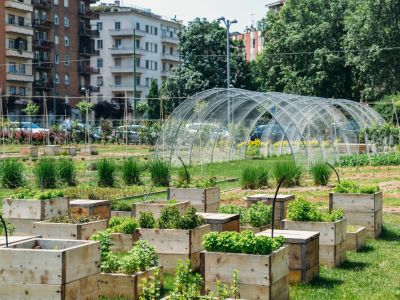Problems with Urban Gardens
Most urban garden problems aren’t readily apparent when you first dig the soil, but they are very real. Here are some of the most common things to consider before you plant: Permits. Depending on where your garden is located, you may need a permit for tearing up the grass, building a fence, or keeping urban livestock like chickens, bees, and goats. Check with your local municipality before putting in the garden of your dreams to avoid finding out the hard way that it’s not allowed. A lot of urban gardening problems can be prevented by procuring the right permits the first time. The human element. We all want to assume that our neighbors are both helpful and supportive of our garden efforts, but that’s not always the truth. It’s a good idea to talk to neighbors before starting a front yard garden and to erect a fence where there’s a lot of foot traffic. Produce theft is a real thing and happens to disappointed urban gardeners everywhere. Sun protection. Urban community gardens are especially susceptible to problems with sunscald and radiant heat because many are constructed in areas littered with plenty of concrete, pavement, and large structures. When these surfaces warm up through the day, they can literally hold onto the heat for hours and cook your plants well beyond nightfall. Contaminated soils. Even if the soil in your urban garden is healthy and rich, it may be hiding secret contamination from the past. Lead contamination is by far the biggest risk, and although most vegetable plants won’t uptake lead into their systems, it can be a problem if you don’t wash produce thoroughly or a child eats the soil in the garden. Having a soil test for heavy metals is good practice before you get to gardening. Ozone. Burning gasoline and other fossil fuels can result in ozone pollution near the ground. Although there’s little you can do to protect plants from this hazard, knowing ozone is a problem can help direct your gardening efforts. Ozone-resistant garden plants are being developed, but aren’t available to the public yet. Until then, you may want to move gardens to areas further away from roads and sources of pollution. Water supply. Rainwater gardening is romantic and earthy, but not every area has rainwater that’s safe to use for gardening. Pollutants can concentrate in the rainwater in urban areas, injuring plants and causing potential harm to gardeners. Municipal water may also be suspect, depending on native minerals and additives, like fluoride, which can hurt sensitive plants. Accessing useable water can be a trick in some areas, especially where drought and water rationing are common. Plan ahead for water long before you start to plant.
